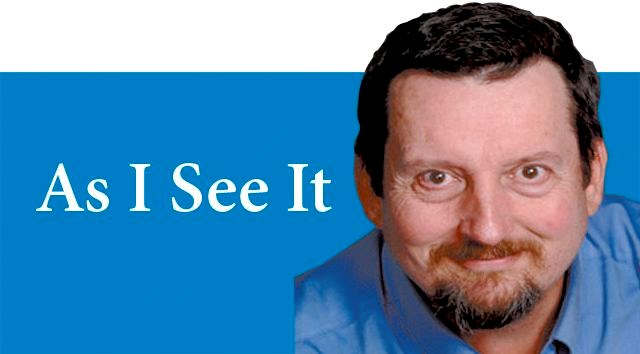As a species, humans have evolved with a natural sense of curiosity. It is an essential survival trait since understanding why or how something happens can prevent injury or death. Curiosity can also lead to rewards.
Our inherent drive to understand the world around us manifests in scientific curiosity and religious belief systems. But it also pushes us to find singular answers.
To think that there is an answer to every situation or question.
As an example, consider losing weight. We are told through advertising the answer is eat more broccoli or fewer bananas or use this or that exercise routine. We want an answer so things will be better. And we often come up with our own approach because it is "the answer" which works for us.
For the most part, this isn't an issue in our lives. It can lead to frustration when the results are not what we would expect but most of us are able to shift gears.
If a particular approach isn't working, we are smart enough to try something different.
However, I would suggest in the world of politics, John Kenneth Galbraith may have had it right when he said "faced with the choice between changing one's mind and proving that there is no need to do so, almost everyone gets busy on the proof."
I mention this because politicians of all stripes seem to be fixated on a singular answer to just about every problem we face - lower taxes.
If the economy is under-performing, lower taxes. If the economy is going well, lower taxes. If the environment is in trouble, lower taxes. If businesses are moving, lower taxes. If inflation is too high, lower taxes.
Doesn't seem to matter what the problem is, lower taxes always seems to be the answer. Politicians will go to great lengths to prove this is true. This seems to be particularly true for the right-wing portion of the political spectrum although I have heard many left-wing politicians starting to spout the same message.
But this answer isn't the panacea it is portrayed to be. To begin with, lowering taxes doesn't benefit everyone in the same way or to the same extent. For example, if you are earning $10,000 per year, you are already not paying income tax. Lowering the tax rate one or two per cent won't benefit you at all.
On the other hand, if you are earning $100,000 per year, a one per cent decrease in the tax rate might save you a few hundred dollars whereas if you are earning $1,000,000 then it might be $10,000.
Our income tax rates depend upon income and those with lower income are expected to pay less but they also benefit the least from a decrease in the progressive tax structure.
However, decreasing the sales tax benefits individuals and families at the lower end of the income bracket more as they are a cost on fixed consumables. We all need certain basic necessities to live and paying less for the essentials benefits a low income earner much more than someone with excess income.
In either case, the simplistic answer of "lower taxes" will not work for everyone in the same way. There isn't a singular answer despite what we hear.
But in a recent television commercial, Conservative leader Andrew Scheer kicked off the next election campaign cycle by promising lower taxes.
Yes, it will ensure hardworking Canadians will be better off and keep more of their money in their pocket.
Sounds good. Sounds like the right answer. Except it will not benefit everyone to the same extent nor in the same manner. A farmer in Saskatchewan or a fisher in British Columbia or a lawyer in Toronto won't necessarily agree on which taxes should be lowered and how it will affect them.
Of course, the other side of the equation is to ask why we pay taxes in the first place. Generally, they support the things we use communally such as hospitals, schools, roads, bridges, transportation infrastructure, social security and such. The essential principle is that we should all be contributing to the collective good.
If we lower taxes, what happens to many of these institutions? Would anyone favour lower taxes if they knew it meant their loved one would not receive critical medical care? Would anyone be in favour of lowing taxes if knew our schools would be closed?
Taxes are a necessary component of the social contract by which we live. Those who can afford to do so help those less fortunate. This is a central teaching of every major religion on Earth as it is a basic principle we follow in our daily lives.
So, I find it curious that lowering taxes seems to be the singular answer politicians revert to. Maybe our sense of curiosity should lead us to think about alternatives.



